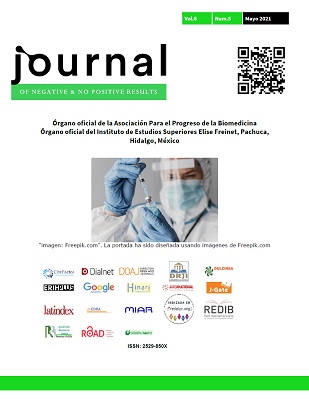Lie and moral issues
DOI:
https://doi.org/10.19230/jonnpr.4150Abstract
-
Downloads
References
Spence SA, Hunter MD, Farrow TF, Green RD, Leung DH, Hughes CJ, et al. A cognitive neurobiological account of deception: evidence from functional neuroimaging. Philos Trans R Soc Lond B. 2004;359:1755-62.
Mameli F, Scarpazza C, Tomasini E, Ferrucci R, Ruggiero F, Sartori G, et al. The guilty brain: the utility of neuroimaging and neurostimulation studies in forensic field. Rev Neurosci. 2017;28:161-72.
Catalán M. Ética de la verdad y la mentira. Seudología VI. Madrid: Editorial Verbum; 2015.
Morrow JK. City of truth. New York: Mariner Books; 1993.
Vogel L. Why do patients often lie to their doctors? CMAJ. 2019;191:E115.
Tuckett AG. Truth-telling in clinical practice and the arguments for and against: a review of the literature. Nurs Ethics. 2004;11:500-13.
Satel S, Lillienfeld SO. Brainwashed: The seductive appeal of mindless neuroscience. New York: Basic Book; 2015.
Neural correlates of different types of deception: An fMRI investigation. Cerebral Cortex. 2003;13:830-36.
Santo Tomas de Aquino. Suma de Teología. Madrid: Biblioteca de Autores Cristianos; 2017.
Twain M. Las tres erres. Madrid: Edición de Maxwell Geismar; 1975.
Published
Issue
Section
License
All accepted originals remain the property of JONNPR. In the event of publication, the authors exclusively transfer their rights of reproduction, distribution, translation and public communication (by any sound, audiovisual or electronic medium or format) of their work. To do so, the authors shall sign a letter transferring these rights when sending the paper via the online manuscript management system.
The articles published in the journal are freely used under the terms of the Creative Commons BY NC SA license, therefore.
You are free to:
Share — copy and redistribute the material in any medium or format
Adapt — remix, transform, and build upon the material
The licensor cannot revoke these freedoms as long as you follow the license terms.
Under the following terms:
Attribution — You must give appropriate credit, provide a link to the license, and indicate if changes were made. You may do so in any reasonable manner, but not in any way that suggests the licensor endorses you or your use.
NonCommercial — You may not use the material for commercial purposes.
ShareAlike — If you remix, transform, or build upon the material, you must distribute your contributions under the same license as the original.
No additional restrictions — You may not apply legal terms or technological measures that legally restrict others from doing anything the license permits.

This work is licensed under a Creative Commons Attribution-NonCommercial-ShareAlike 4.0 International License

























